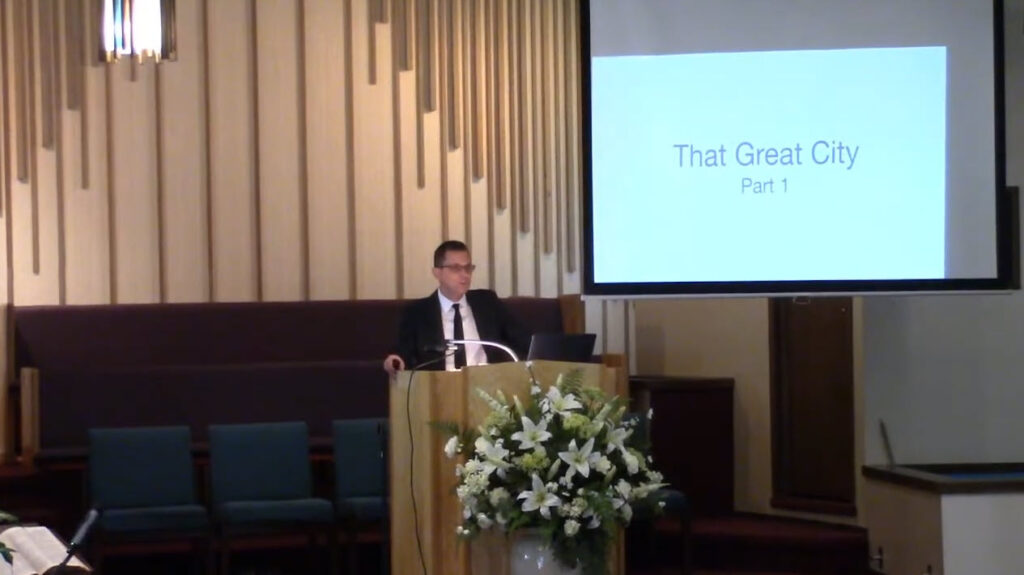The focus is on Revelation 17, building on previous discussions from Ezekiel 16:38 about God’s judgment against unfaithfulness and violence.
Key Themes in Revelation 17
Context of Revelation 17
- The chapter discusses a woman (representing a church) riding a beast (symbolizing a nation or kingdom).
- The imagery includes seven heads and ten horns, which are significant in understanding the prophecy.
Interpretation of the Beast
- The beast is described as having come from the bottomless pit, indicating it has received a deadly wound but will rise again.
- The term “predition” is analyzed, linking it to 2 Thessalonians 2, where it refers to destruction and is associated with the Antichrist.
Book of Life
- The video emphasizes the importance of names being written in the Book of Life, citing Exodus 32:33 and Revelation 3:5.
- The foundational role of Christ’s sacrifice is highlighted, as it relates to salvation and the concept of probation for humanity.
Seven Heads and Ten Horns
The Seven Heads
- The presenter identifies the seven heads as seven kingdoms, using biblical references to explain their significance.
- They discuss past kingdoms like Babylon, Medo-Persia, Greece, and Rome, leading to the conclusion that papal Rome fits this prophecy.
The Ten Horns
- The ten horns represent future kings who have not yet received power but will rule alongside the beast.
- The concept of a “one-world order” is introduced, suggesting a unification of these powers in opposition to God.
Symbolism and Prophetic Timeline
Mountains as Kingdoms
- The video explains that mountains represent kingdoms, referencing Daniel 2 and Jeremiah 51.
- The presenter emphasizes that the prophecy is linked to historical kingdoms and their eventual destruction.
Conclusion
- The video concludes with a call to understand the implications of these prophecies on current events and personal faith.
- The final conflict between good (the Lamb) and evil (the beast) is foretold, urging viewers to remain vigilant and faithful.


